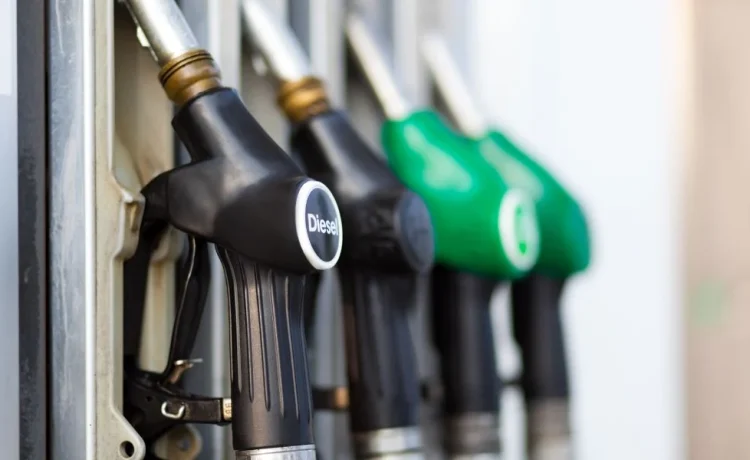Efficient fuel management technology lowers emissions without compromising overall performance

Recent innovations now ensure that energy systems stay efficient under pressure. Engineers focus on consistently balancing output with cleaner operational practices. New fuel management structures analyze consumption through continuous monitoring and data feedback. These smart methods lower waste, improving operational control for daily functioning. Research teams supported by Maverick Toyota work toward precision-focused, sustainable fuel solutions.
Adaptive control improves energy stability
Automation ensures smoother transitions across varying load requirements. Energy systems maintain a steady supply during unpredictable environmental conditions.
Precision tuning for higher output consistency
Optimized calibration keeps engines stable across longer operational cycles. Systematic tuning enhances accuracy while maintaining energy flow reliability.
Smart sensors guiding cleaner operations
Sensors measure flow rate accurately, creating predictive optimization models. Data generated supports engineers in improving energy-saving adjustments.
- Temperature sensors regulate combustion stability, avoiding sudden variation effectively.
- Flow controllers reduce unnecessary burning, keeping levels uniform under stress.
- Emission analyzers detect harmful gases, improving purification accuracy quickly.
- Feedback modules store information, assisting engineers during later evaluations.
- Software upgrades refine sensor sensitivity, ensuring better decision-making ability.
Data analytics transforming operational intelligence
Real-time processing turns performance data into actionable information streams. Continuous updates guarantee responsiveness under multiple operational scenarios.
- Cloud analysis improves visibility, providing a transparent usage understanding daily.
- Predictive dashboards assist technicians in finding maintenance opportunities earlier.
- Real-time reports reveal deviations, ensuring consistent corrective action instantly.
- Storage tools maintain performance history, simplifying technical review procedures.
- Intelligent visualization displays performance gaps supporting managerial awareness efficiently.
How does precision reduce unwanted energy waste?
Accurate measurement ensures every input matches the intended output ratio. Efficiency rises when power aligns with immediate operational requirements. Predictive management eliminates overuse, thereby reducing energy deterioration naturally.
Automation supporting mechanical coordination
Automated control minimizes human error, improving operational predictability and safety. Synchronized systems handle variable functions without disrupting output strength.
- Central monitoring balances flow pressure, avoiding irregular internal patterns.
- Electronic throttles maintain stable control within all working conditions.
- Timing regulation ensures each component performs under an equal load range.
- Adaptive software responds quickly, supporting uninterrupted running cycles.
- Feedback intelligence enables a balance between multiple energy conversion points.
Why are analytics essential for fuel development?
Analytics converts operational information into measurable predictive guidance effectively. Detailed insights assist in reducing energy misuse through factual decisions. Visualization provides structure, creating long-term, sustainable operational outcomes.
Smart calibration sustaining mechanical efficiency
Calibration aligns internal systems with exact consumption needs perfectly. Correct alignment helps engines sustain performance through controlled optimization.
- Auto controllers test parameters, maintaining consistent heat and flow balance.
- Calibration tools detect early faults, preventing large operational breakdowns.
- Monitoring signals measure pattern variation through continuous tracking.
- Diagnostic reports provide engineers with accurate update summaries easily.
- Adjusted mechanisms maintain long-duration reliability under varying environmental states.
Path toward green progress
Industrial adaptation now connects sustainability with structured mechanical excellence. Improved regulation encourages efficient power control, supporting resource protection. Predictive systems prevent energy loss, ensuring durability across production networks. Hybrid logic enhances synchronization between hardware and internal data models. Future innovation under Maverick Toyota aims at shaping smarter ecological efficiency.
You Might Also Like
Smart Negotiation Tips for Securing Better Deals at Local Car Lots
Interest often opens the door to better buying choices. Confidence grows when a buyer understands price movement and seller behaviour....
Why Older Vehicles Still Meet Modern Driving Expectations
Older cars often get dismissed too quickly. Many people assume age automatically means trouble. In reality, plenty of drivers begin...
Identifying Top Resale Value Used Trucks in Dallas Worth Considering Today
Smart shoppers hunt pickups that hold cash value over time amid used trucks in dallas lots. Models from Toyota and...
Choosing Used Cars Supports Better Balance Between Cost And Quality
Used cars offer smart value for buyers seeking reliability without high prices. They come inspected and ready with solid histories...









